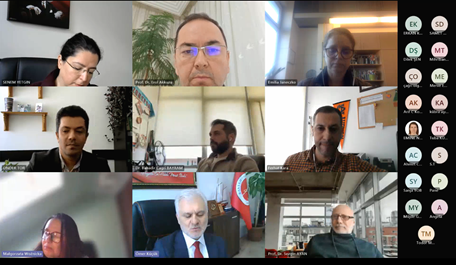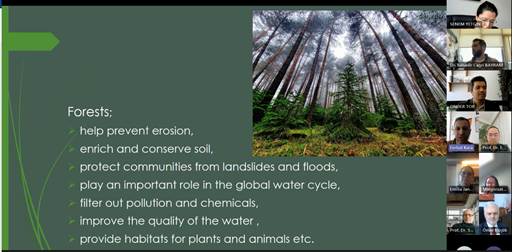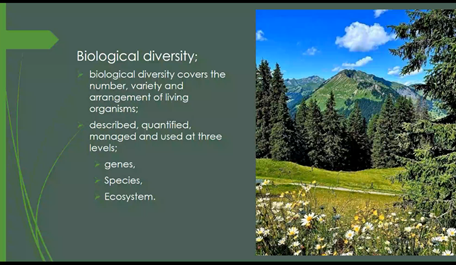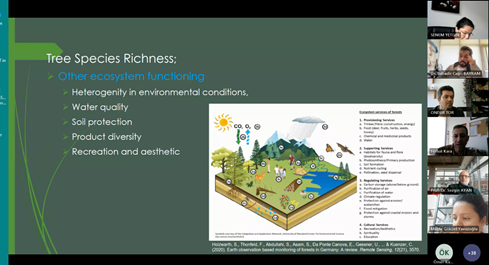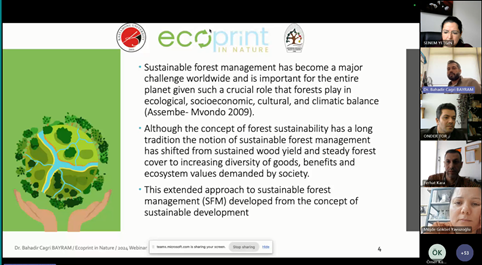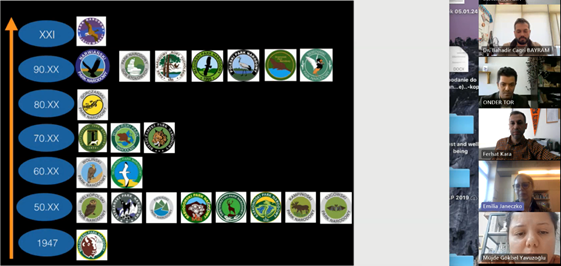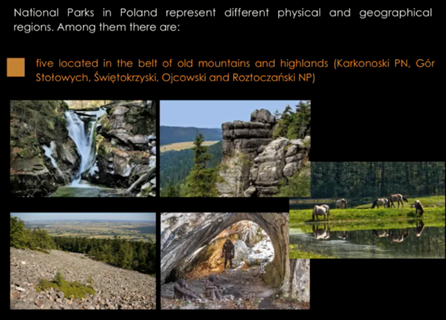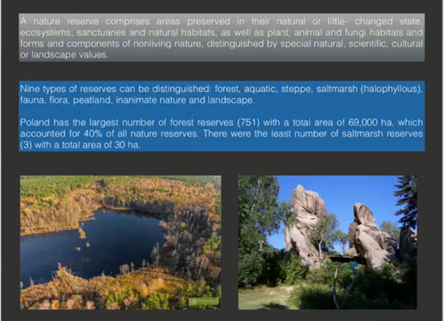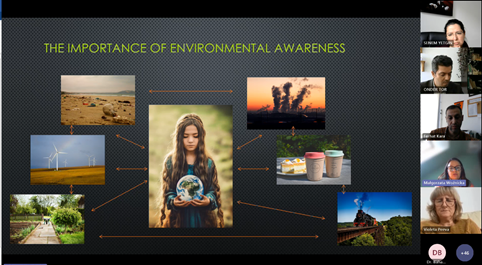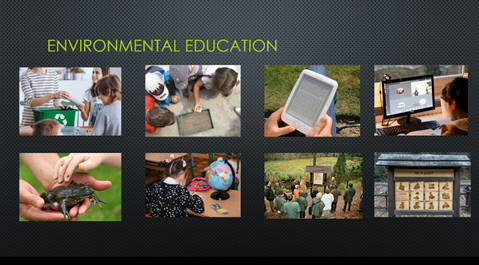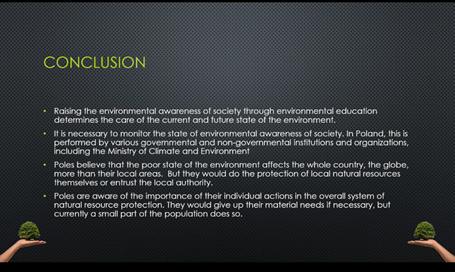The first of the online seminar series of the "ECOPRINT in Nature" project, which is carried out under the coordination of Kastamonu University, supported by the Directorate for EU Affairs and the Turkish National Agency within the framework of the Erasmus+ Programme Small Partnerships in Adult Education (KA210-ADU), was held on 29 January 2024 with the participation of 60 attendees.
The seminar, which was opened by Prof. Ömer Küçük, Vice Rector at Kastamonu University, and Prof. Erol Akkuzu, Dean of the Faculty of Forestry, continued with presentations on biodiversity, sustainability, environmental protection, and ecological awareness by invited speakers from Kastamonu University and Warsaw University of Life Sciences (SGGW) under the moderation of project coordinator Assoc. Prof. Önder Tor.
Prof. Akkuzu, in his opening speech, emphasized that with this project, we aim to increase environmentalist thinking, cooperate by protecting common values, and highlight the cultural interaction between partner countries. Prof. Akkuzu also mentioned that we purpose to make environmentally friendly products more widespread in our region by focusing on the innovative and productive aspects of the women participants in this project within the framework of environmental sustainability.
Prof. Küçük, in his speech, mentioned that Kastamonu University has a critical mission as a specialized university in the field of Forestry and Nature Tourism with the importance of research and product development-oriented quality enhancement and quality improvement studies in these fields. Prof. Küçük emphasized that we aim to develop the entrepreneurial aspects of women participants, develop themselves, and provide cultural and social interaction with our partners in North Macedonia and Poland with this project, where environmentally friendly products will be produced with ecological approaches.
In the seminar presentations, Assoc. Prof. Ferhat Kara, a faculty member of the Faculty of Forestry at Kastamonu University, first mentioned the products and services provided by forests by discussing biodiversity and tree species diversity in forest ecosystems. Then, on the subject of biodiversity and tree species diversity in forest ecosystems, he emphasized that forest biodiversity includes not only trees but also many plants, animals, and microorganisms living in forest areas and the genetic diversity associated with them, that forests with biodiversity are generally more successful in adapting to changing environmental conditions, and that the level of diversity and complexity of life in a forest is vital for the continuity of the products and services provided by forest ecosystems for humans. Dr. Kara also mentioned that tree species diversity positively affects carbon storage in forests, plant nutrition, plant and animal diversity, ecosystem functioning, water quality, and cycle and stand productivity, and reduces the adverse effects of climate change.
Assoc. Prof. Dr. Bahadır Çağrı Bayram, a faculty member of the Faculty of Forestry of our university, made a seminar presentation on "Forestry and Sustainability." Emphasizing that forestry is one of the areas where the sustainability approach is most widely applied, Dr. Bayram stated that Sustainable forest management is an international responsibility that is essential to the world because of the role that forests play in preserving ecological, social, cultural, and climatic balance. Dr. Bayram highlighted three main pillars with the theme aspects designed to increase and efficiently exploit forest resources: economic, environmental, and socio-cultural. With the thematic elements developed for increasing and efficient use of forest resources, Dr. Bayram foregrounded three critical issues: economic, environmental, and socio-cultural. Referring to the importance of the circular economy, Dr. Bayram mentioned that consumers should primarily focus on less consumption and more recycling and highlighted the need to increase efforts to use environmentally friendly products more widely.
Professor Emilia Janeczko, from the Department of Forest Conservation, Warsaw University of Life Sciences in Poland, discussed the value of environmental protection and the efforts made by Poles in this regard. Prof. Janeczko stated that activities that could endanger live species should be avoided in protected areas designated in nature protection plans. These include national parks, forest resources, recreational areas, natural monuments, and living species. Dr. Małgorzata Woźnicka, another speaker from the same university, mentioned Poles' ecological awareness. Dr. Woźnicka drew attention to the need to increase environmental awareness, increase the effectiveness and number of ecological training, follow up the environmental awareness of the society with scientific research, and contribute to ecological consciousness on an individual and societal level.
During the seminar's closing remarks, Dr. Tor said that the initiative should raise participants' knowledge of sustainability and the environment and that we should all be more conscientious consumers and producers. Dr. Tor also invited the participants to attend the second seminar on ecological products, which will take place in February.

